Transcription of NATIONAL ENVIRONMENTAL MANAGEMENT: WASTE ACT …
1 Prepared by: In partnership with: (1 July 2009 23 July 2013) [This version applied as from 1 July 2009, the date of commencement of the NATIONAL ENVIRONMENTAL management : WASTE Act 59 of 2008 (save for certain sections) - to 23 July 2013, the day before commencement of the NATIONAL ENVIRONMENTAL management Laws Amendment Act 14 of 2013] NATIONAL ENVIRONMENTAL management : WASTE ACT 59 OF 2008 (Government Notice 278 in Government Gazette 32000 dated 10 March 2009. Commencement date: 1 July 2009 (except for sections 28(7)(a), sections 35 41 and section 46 [Proc. No. 34, Gazette No. 32189]) _____ (English text signed by the President) [Assented To: 6 March 2009] _____ ACT To reform the law regulating WASTE management in order to protect health and the environment by providing reasonable measures for the prevention of pollution and ecological degradation and for securing ecologically sustainable development; to provide for institutional arrangements and planning matters; to provide for NATIONAL norms and standards for regulating the management of WASTE by all spheres of government; to provide for specific WASTE management measures; to provide for the licensing and control of WASTE management activities; to provide for the remediation of contaminated land; to provide for the NATIONAL WASTE information system; to provide for compliance and enforcement.)
2 And to provide for matters connected therewith. PREAMBLE WHEREAS everyone has the constitutional right to have an environment that is not harmful to his or her health and to have the environment protected for the benefit of present and future generations through reasonable legislative and other measures that- (a) prevent pollution and ecological degradation; (b) promote conservation; and (c) secure ecologically sustainable development and use of natural resources while promoting justifiable economic and social development; Page 2 of 79 Prepared by: In partnership with: AND WHEREAS WASTE management practices in many areas of the Republic are not conducive to a healthy environment and the impact of improper WASTE management practices are often borne disproportionately by the poor; AND WHEREAS poor WASTE management practices can have an adverse impact both locally and globally.
3 AND WHEREAS sustainable development requires that the generation of WASTE is avoided, or where it cannot be avoided, that it is reduced, re-used, recycled or recovered and only as a last resort treated and safely disposed of; AND WHEREAS the minimisation of pollution and the use of natural resources through vigorous control, cleaner technologies, cleaner production and consumption practices, and WASTE minimisation are the key to ensuring that the environment is protected from the impact of WASTE ; AND WHEREAS WASTE under certain circumstances is a resource and offers economic opportunities; AND WHEREAS WASTE and management practices relating to WASTE are matters that- require NATIONAL legislation to maintain essential NATIONAL standards; in order to be dealt with effectively, require uniform norms and standards that apply throughout the Republic; and in order to promote and give effect to the right to an environment that is not harmful to health and well-being, have to apply uniformly throughout the Republic; and require strategies, norms and standards which seek to ensure best WASTE practices within a system of co-operation governance, BE IT THEREFORE ENACTED by the Parliament of the Republic of South Africa, as follows:- TABLE OF CONTENTS CHAPTER 1 INTERPRETATION AND PRINCIPLES 1.
4 Definitions 2. Objects of Act 3. General duty of State 4. Application of Act 5. Application of NATIONAL ENVIRONMENTAL management Act Page 3 of 79 Prepared by: In partnership with: CHAPTER 2 NATIONAL WASTE management STRATEGY, NORMS AND STANDARDS Part 1 NATIONAL WASTE management strategy 6. Establishment of NATIONAL WASTE management strategy Part 2 NATIONAL norms and standards, provincial norms and standards and WASTE service standards 7. NATIONAL norms and standards 8. Provincial norms and standards 9. WASTE service standards CHAPTER 3 INSTITUTIONAL AND PLANNING MATTERS 10. Designation of WASTE management officers 11. Certain organs of state to prepare integrated WASTE management plans 12. Contents of integrated WASTE management plans 13. Reporting on implementation of integrated WASTE management plans CHAPTER 4 WASTE management MEASURES Part 1 Priority wastes 14. Declaration of priority wastes 15.
5 Consequences of declaration of priority wastes Part 2 General duty 16. General duty in respect of WASTE management Part 3 Reduction, re-use, recycling and recovery of WASTE 17. Reduction, re-use, recycling and recovery of WASTE Page 4 of 79 Prepared by: In partnership with: 18. Extended producer responsibility Part 4 WASTE management activities 19. Listed WASTE management activities 20. Consequences of listing WASTE management activities Part 5 Storage, collection and transportation of WASTE 21. General requirements for storage of WASTE 22. Storage of general WASTE 23. WASTE collection services 24. Collection of WASTE 25. Duties of persons transporting WASTE Part 6 Treatment, processing and disposal of WASTE 26. Prohibition of unauthorised disposal 27. Littering Part 7 Industry WASTE management plans 28. Preparation of industry WASTE management plans by certain persons 29.
6 Preparation of industry WASTE management plans by organs of state 30. Contents of industry WASTE management plans 31. Notification of industry WASTE management plans 32. Consideration of industry WASTE management plans 33. Specification of measures to be taken 34. Review of industry WASTE management plans Part 8 Contaminated land 35. Application of this Part 36. Identification and notification of investigation areas 37. Consequences of identification and notification of investigation areas 38. Consideration of site assessment reports 39. Orders to remediate contaminated land Page 5 of 79 Prepared by: In partnership with: 40. Transfer of remediation sites 41. Contaminated land register Part 9 Other measures 42. Recognition programmes CHAPTER 5 LICENSING OF WASTE management ACTIVITES 43. Licensing authority 44. Co-operative governance in WASTE management licence applications 45.
7 Application for WASTE management licences 46. Appointment of persons to manage WASTE management licence applications 47. Procedure for WASTE management licence applications 48. Factors to be taken into account by licensing authorities 49. Decision of licensing authorities on WASTE management licence applications 50. Issuing of WASTE management licences 51. Contents of WASTE management licences 52. Transfer of WASTE management licences 53. Review of WASTE management licences 54. Variation of WASTE management licences 55. Renewal of WASTE management licences 56. Revocation and suspension of WASTE management licences 57. Surrender of WASTE management licences 58. WASTE management control officers 59. Criteria for fit and proper persons CHAPTER 6 WASTE INFORMATION 60. Establishment of NATIONAL WASTE information system 61. Objectives of NATIONAL WASTE information system 62. Establishment of provincial WASTE information systems 63.
8 Provision of information 64. Access to information CHAPTER 7 COMPLIANCE AND ENFORCEMENT 65. Compliance powers of Minister of Water Affairs and Forestry Page 6 of 79 Prepared by: In partnership with: 66. WASTE impact reports 67. Offences 68. Penalties CHAPTER 8 GENERAL MATTERS Part 1 Regulations 69. Regulations by Minister 70. Regulations by MECs 71. General regulatory powers Part 2 Consultative process 72. Consultation 73. Public participation Part 3 Exemptions and appeals 74. Applications for exemption 75. Considerations of applications for exemption 76. Decisions on applications for exemption 77. Review and transfer of exemptions 78. Appeals CHAPTER 9 MISCELLANEOUS 79. Delegation and assignment 80. Repeal and amendment of laws, and savings 81. Transitional provisions in respect of permits issued in terms of Environment Conservation Act 82. Transitional provision regarding listed WASTE management activities 83.
9 Act regarded as specific ENVIRONMENTAL management Act 84. Short title and commencement SCHEDULES 1. WASTE management activities in respect of which WASTE management licence is required 2. Laws repealed or amended Page 7 of 79 Prepared by: In partnership with: CHAPTER 1 INTEPRETATION AND PRINCIPLES 1. Definitions In this Act, unless the context indicates otherwise- acceptable exposure means the exposure of the maximum permissible concentration of a substance to the environment that will have a minimal negative effect on health or the environment; associated structures and infrastructure , when referred to in Schedule 1, means any building or infrastructure that is necessary for the functioning of a facility or WASTE management activity or that is used for an ancillary service or use from the facility; best practicable ENVIRONMENTAL option means the option that provides the most benefit or causes the least damage to the environment as a whole, at a cost acceptable to society, in the long term as well as in the short term.
10 Building and demolition WASTE means WASTE , excluding hazardous WASTE , produced during the construction, alteration, repair or demolition of any structure, and includes rubble, earth, rock and wood displaced during that construction, alteration, repair or demolition; business WASTE means WASTE that emanates from premises that are used wholly or mainly for commercial, retail, wholesale, entertainment or government administration purposes; by-product means a substance that is produced as part of a process that is primarily intended to produce another substance or product and that has the characteristics of an equivalent virgin product or material; clean production means the continuous application of integrated preventative ENVIRONMENTAL strategies to processes, products and services to increase overall efficiency and to reduce impact of such processes, procedures and services on health and the environment; commence means the start of any physical activity, including site preparation or any other activity on the site in furtherance of a WASTE management activity, but does not include any activity required for investigation or feasibility study purposes as long as such investigation or feasibility study does not constitute a WASTE management activity; Constitution means the Constitution of the Republic of South Africa, 1996.
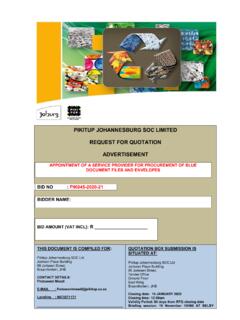
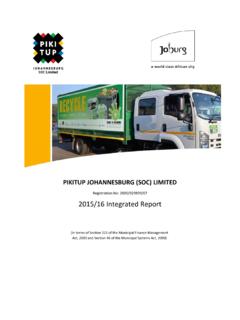

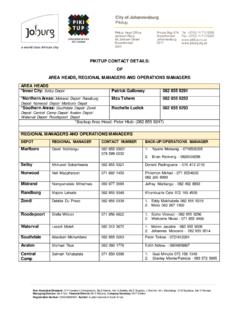
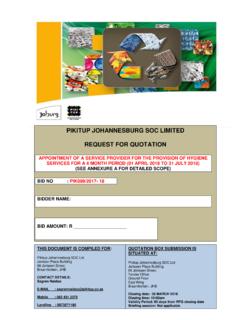
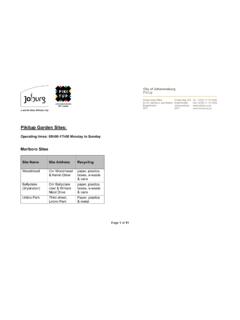
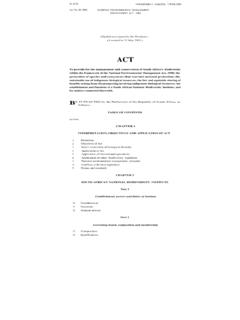


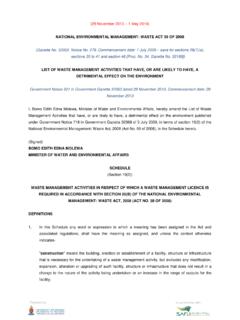


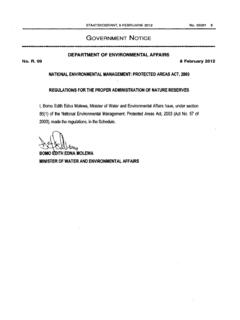
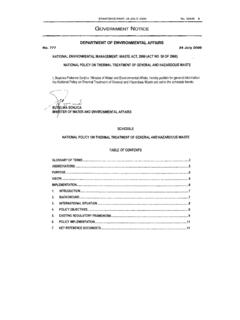

![National Environmental Management Act [No. 107 of 1998]](/cache/preview/3/8/3/c/e/f/0/e/thumb-383cef0e6349dc46a88a24f7331b59ae.jpg)